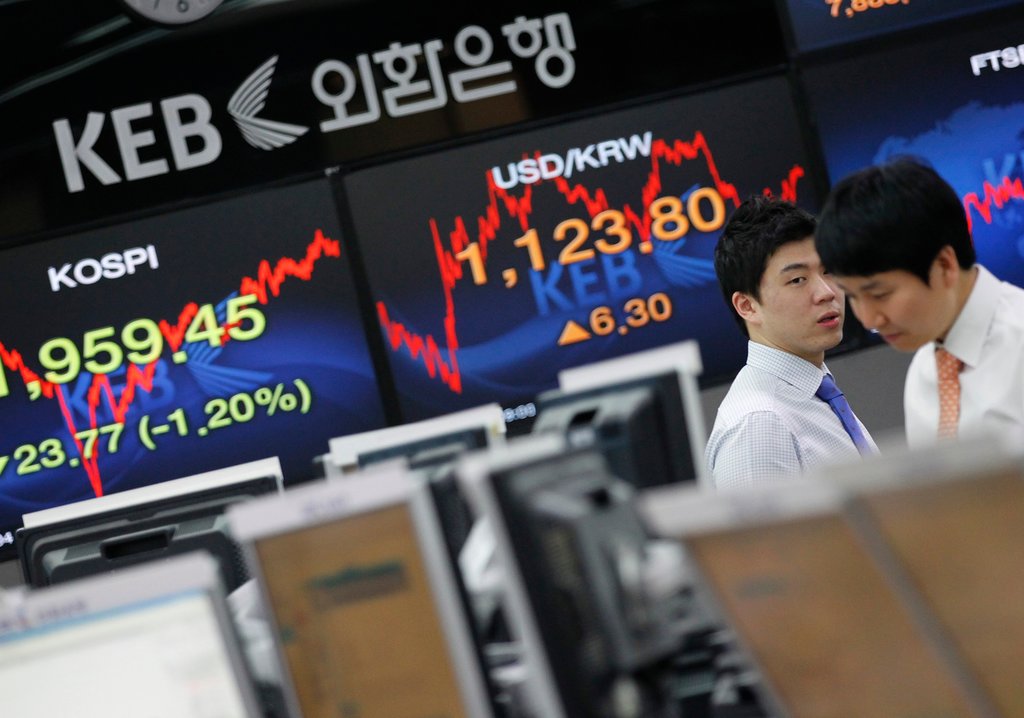
In the context of the complex and volatile global economy, the Korean economy is facing unprecedented challenges, which was reflected in the recent emergency joint statement issued by the presidents of 16 leading domestic companies, including Samsung, SK, Hyundai Motor and LG. The deep concern of the Korean business community over the current economic difficulties also reflects the deep concern and urgent appeal of business leaders for the country's economic fate.
In the statement, the president bluntly pointed out that the South Korean economy is standing at a delicate crossroads, and the slightest mistake may slide into a difficult dilemma. This judgment is not groundless, but based on an in-depth analysis of several key indicators of the current economy. The economy is running out of steam and reaching even the relatively modest 2 per cent growth target has become increasingly difficult. In the domestic market, the shadow of structural stagnation remains for a long time due to multiple factors such as high household debt and low consumer confidence. Exports, the traditional pillar of South Korea's economy, are also facing unprecedented uncertainties, especially with the adjustment of trade policies in the second term of the Trump administration in the United States, the uncertainty of the global trade environment has further intensified, making the export outlook more unpredictable.
What is more severe is that the continuous appreciation of the exchange rate not only intensifies the cost pressure of enterprises, but also leads to a sharp increase in corporate debt, and the operating environment is becoming increasingly severe. Under the combined effect of this series of adverse factors, investor confidence has been frustrated, and some investors have begun to withdraw from the South Korean market, which undoubtedly adds more obstacles to the recovery of the South Korean economy.
In the face of such a severe economic situation, the presidents stressed the importance of four-party cooperation between the government, the National Assembly, the public and businesses, which is the key to achieving a new leap forward in the Korean economy. They called on the administration and Congress to focus more on legislation and budgeting that promotes economic growth, rather than just regulatory legislation. In particular, the presidents expressed strong concerns over the revision of the Commercial law, which will soon be considered by the National Assembly. They believe that if the contents of the amendment on expanding the loyalty obligation of directors are passed, it will greatly increase the uncertainty of enterprise management, and may even lead to frequent lawsuits, which will hinder the normal operation of the board of directors and affect the innovation ability and competitiveness of enterprises.
In order to effectively deal with the current economic difficulties, the presidents put forward a number of concrete proposals, including regulatory reform. They pointed out that in the context of countries around the world have increased support for cutting-edge industries, South Korea must seize this golden opportunity to accelerate the development of key areas such as artificial intelligence, semiconductors, secondary batteries, mobile devices, biotechnology, new energy and industrial materials. To this end, they called on the government to increase policy support and capital investment in the above areas to stimulate the innovation vitality of enterprises and promote industrial upgrading and transformation.
At the same time, the business community has also expressed its willingness to actively respond to change and take the initiative to stand at the forefront of change. They pledged to continuously explore new business areas, strive to create more job opportunities, and contribute to the diversification and sustainable development of the Korean economy. However, despite the growing clamour from the business community, the response from the government and political circles has been relatively lukewarm and even disjointed in some respects.
The International Monetary Fund has warned that South Korea's economic growth could fall below 2 percent next year and called on the government to take strong economic policies to cope with the challenges of low growth. However, the current South Korean government still seems to be steeped in past achievements and fails to fully realize the urgency of the crisis, while the political circle is more focused on legislative activities that hinder business development, ignoring the importance of creating an enabling environment for business.
In this context, the emergency statement of the presidential delegation is undoubtedly a profound reflection and alarm on the current economic plight of South Korea. They called on the government, the National Assembly and all sectors of society to face up to the reasonable demands of the business community and work together to create a more open, inclusive and conducive market environment for enterprise development.

報告顯示,中國電力投資加速增長,預計2024年電網基建投資將超過5300億元。
近日,市場迎來了一則引人注目的消息:工業巨頭3M公司(MMM.N)在本周五公布了其季度業績報告,隨後股價飆升至近兩年來的
最近,外媒給OpenAI算了筆賬,今年可能要血虧50億美元。
近日,巴黎奧運會和世界鐵人三項協會聯合發布了一項重大決定,宣布因塞納河水質污染問題,原定於近期進行的奧運會鐵人三項首次下
當地時間7月18日,法國巴黎發生了一起令人震驚的持刀襲警事件。
近期,一則重大消息在國際舞臺上引起軒然大波,馬來西亞宣布加入金磚國家。
調查發現,互聯網和智能手機的使用幹擾了韓國近五分之一學生的生活。